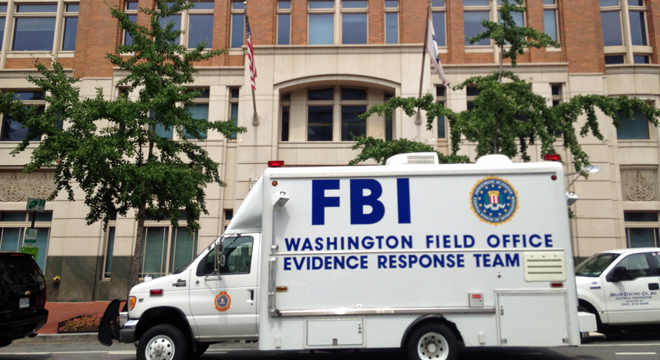Floyd Corkins, the 28-year-old Virginia man who allegedly shot a security guard in the Family Research Council headquarters in Washington, D.C. on Wednesday because of the group’s opposition to gay marriage, could be prosecuted under a hate crimes statute. The FRC would rather he wasn’t.
While the FRC has specifically opposed expanding hate crimes protections to individuals targeted for violent attacks because of their sexual orientation or gender identity because they believe it “sends the false message that deviant sexual behaviors are somehow equivalent to other categories of protection such as race or sex,” the group also opposes any hate crimes law on principle.
“Violent attacks upon people or property are already illegal, regardless of the motive behind them. With ‘hate crime’ laws, however, people are essentially given one penalty for the actions they engaged in, and an additional penalty for the politically incorrect thoughts that allegedly motivated those actions,” the group states on its website.
“We oppose all Thought Crime laws in principle, because penalizing people specifically for their thoughts, beliefs, or attitudes — even ones abhorrent to us and to the vast majority of Americans, such as racism — would undermine the freedom of speech and thought at the heart of our democracy,” the group states.
While the FRC is a Christian organization — and religious affiliation is a protected category under federal law — federal prosecutors could have trouble proving that Corkins was specifically motivated by the FRC’s Christianity rather than their political activity.
In a more likely scenario, Corkins could be prosecuted under D.C.’s more expansive hate crimes law, which targets violent crimes motivated by political affiliation.
If Corkins were prosecuted under federal hate crimes law, his own religious affiliation might not matter — even if he’s Christian. In a separate case involving competing Amish sects, the Justice Department successfully argued that the hate crimes law applied to intra-religious violent crimes.
“There is nothing in the language of the statute that limits its reach to acts of violence perpetrated by members of one religious group against members of another,” U.S. District Judge Dan Aaron Polster ruled in late May. “While hate crimes are often committed by members of one religious (or racial or ethnic) group against another, history is replete with examples of internecine violence. By the Defendants’ logic, a violent assault by a Catholic on a Protestant, or a Sunni Muslim on a Shiite Muslim, or an Orthodox Jew on a non-Orthodox Jew, would not be prohibited by this statute.”
Hate crimes against Christians are much more rare than hate crimes against other religions. FBI statistics show that there were 58 anti-Catholic and 41 anti-Protestant hate crime incidents in 2010, a number dwarfed by the 887 anti-Jewish hate crime incidents reported.
Corkins is currently in the custody of the FBI and was held overnight on a charge of assault with a deadly weapon. The U.S. Attorney for the District of Columbia is expected to file charges against Corkins on Thursday.









